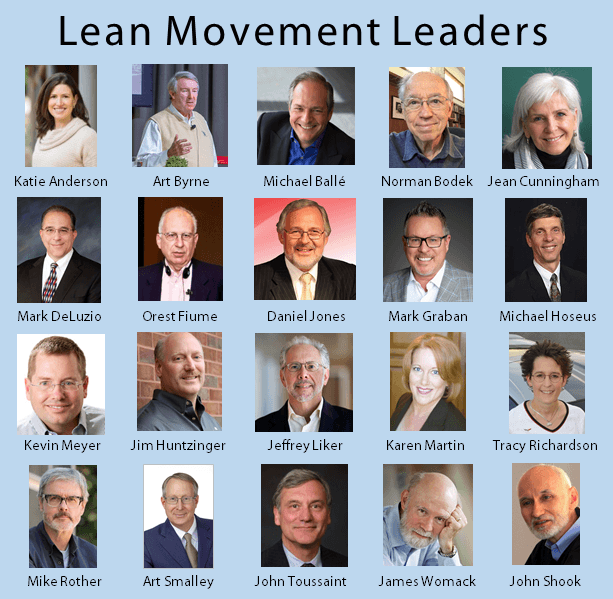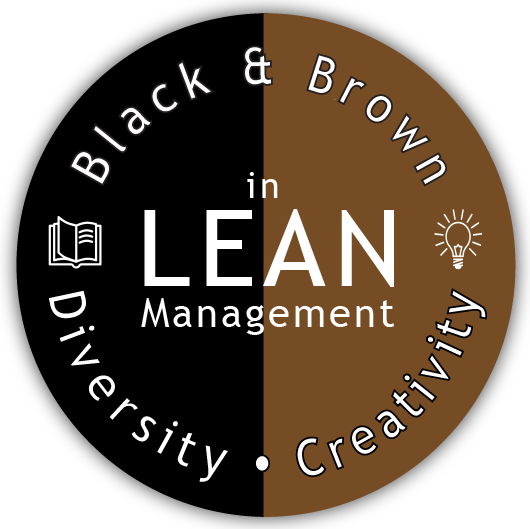I sometimes wonder how my large body of work on Lean leadership, Lean management, Classical management, and Lean applied to higher education would have been received by the Lean community if it was written by any one of these people:

Specifically, how influential my work might have been — not from a money-making perspective — but to instead help people cope with their challenges, understand the difficulties they will surely encounter, and think of ideas to overcome them. This reflection stems from a conversation I had recently with a Latino man who has experienced life-long marginalization at work and in his personal life because of who he is. His story sounded a lot like what I have experienced throughout my personal life and working career.
As you can probably tell by looking at me, I am a mixed-race Latino male. My given name is Mario Luis Emiliani. An odd name, a different face, eclectic interests, and Autism Spectrum Disorder (I contest the word “Disorder” 😉). In my professional life — industry, academia, and Lean-world — I have had these experiences:

- Despite have more industry work (and management) experience than any other full-time academic specializing in Lean, I am labeled as “theoretical” in mindset and teaching method, while my research and writing labeled as “theory.”
- My work, always informed by the genba, is falsely claimed to be devoid of the genba.
- Get badgered about the adequacy of my industry (and Lean) work experience in relation to my academic research, as well as the subject and tone of my writing.
- My work to understand Lean is labeled as “counterproductive.” I have been told I should remove some of my books from the market.
- When I was a keynote conference speaker, I invariably had dinner alone, though sometimes with the nice people whose job it was to plan the conferences. This happened even the times when I paid to be a conference sponsor.
- Told that I am an embarrassment with widely unfavorable reputation.
- Not invited to work parties
- Overlooked or excluded from partnership and business opportunities.
- Singled out for criticism for doing the same things that other people do.

- My work, findings, and opinions are overlooked, discounted, dismissed, ignored, or denied validation.
- Others seek to make me invisible and isolated.
- People are quick to give me unsolicited advice as to what I should or should not do, how I should or should not behave, what I should or should not say, and what I should or should not write.
- People feel the need to remind me of their standards for fealty, etiquette, and decorum.
- People treat me like a novice in fields that I have been engaged with for decades.
- Held to a much higher standard of performance compared to my peer managers.
- Consistently left off the boss’s holiday gift list.
- Lesser works than mine have been promoted and heralded as significant contributions by industry leaders.
- Asked about my work in ways that suggest I stole ideas from someone else or was incapable of doing innovative work.
- My humanistic motivation and wholesome intentions to help others has been disbelieved, dismissed, or ridiculed.
- Hostility in the form of blistering and sustained ad hominem attacks.
- Been told, and often suggested, I should take someone’s advice because of their “status and experience.”
- Been characterized as “angry” for the same things my peers are characterized for as “passionate”
- My postings on social media have been ridiculed, as if I am the only person who “does not know how to use social media properly.”
- Lectured by anti-intellectuals on the right way to think. They also vastly misinterpret my work and happily share their mistaken views to negatively influence others.
- Lack of allies supporting my extensive work.
- And, of course, subjected to various lies and innuendo.
Overall, there is a presumption that my work is to be discounted and that it is less competent than others in the same field.
It is case of resentment borne of intellectual inferiority and moral superiority; a conscious and unconscious drive to segregate and reduce diversity of thought in service to accepted social and cognitive norms of the group. My experiences are based on assumptions about who has keener insights and who has the power to determine inclusion or exclusion; who is welcome and who is unwelcome in a field of endeavor; and who is superior and who is inferior as a human being (that’s fancy-talk for “white people feel obliged to tell me what to do”). The consistent message, delivered over more than three decades, could not be clearer.
In my personal life, I have experienced:
- People locking car doors as I walk by.
- People assume I am the lawn maintenance company worker, not the homeowner.
- People assume I am a retail store employee, not the customer.
- In many other circumstances, people have assumed I am “the help.”
- Exclusion from various social gathering and events.
- Denied common courtesy and not given full attention.
Such circumstances leaves one with few choices. I have chosen to transform the insults and jarring experiences into empowerment, focus, and workmanship; to continue the groundbreaking work that I do and defend my work, and my being, when necessary. Nevertheless, I continue to recommend the good work of my unsupportive peers to other people who ask about it. This includes, but is not limited to, the twenty people shown in the above image.
Finally, I would like those who have an interest in my work to know that I am deeply grateful for your support. It’s been more of a challenge to do what I do than you may have imagined. Thank you.
In my book Management Mysterium, I wrote (p. 59-60):
Diversity also exists on the grounds of a superstition in which women, people of color, and people with different sexual orientations are hired for better representation in thinking and decision-making. Yet, a common experience among the diverse is continued exclusion under the banner of inclusion. Their presence may be valued in terms of appearance, a metric, or other score, but their contributions in the form of thinking differently are not. Traditional modes of thinking and doing, reflective of top leadership, means diverse viewpoints coming from people who look different are often not listened to, particularly when it comes to making important decisions. Diversity is more decorous or symbolic, rather than seen by leaders as producing a material advantage towards improved business efficiency and greater success. The ceremonial text (playbook) for success in business was established long ago, and diversity remains absent. As such, diversity, as it is presently practiced, occupies the spiritual realm.
Management Mysterium, by Bob Emiliani, April 2020
Overall, that has been my experience.

